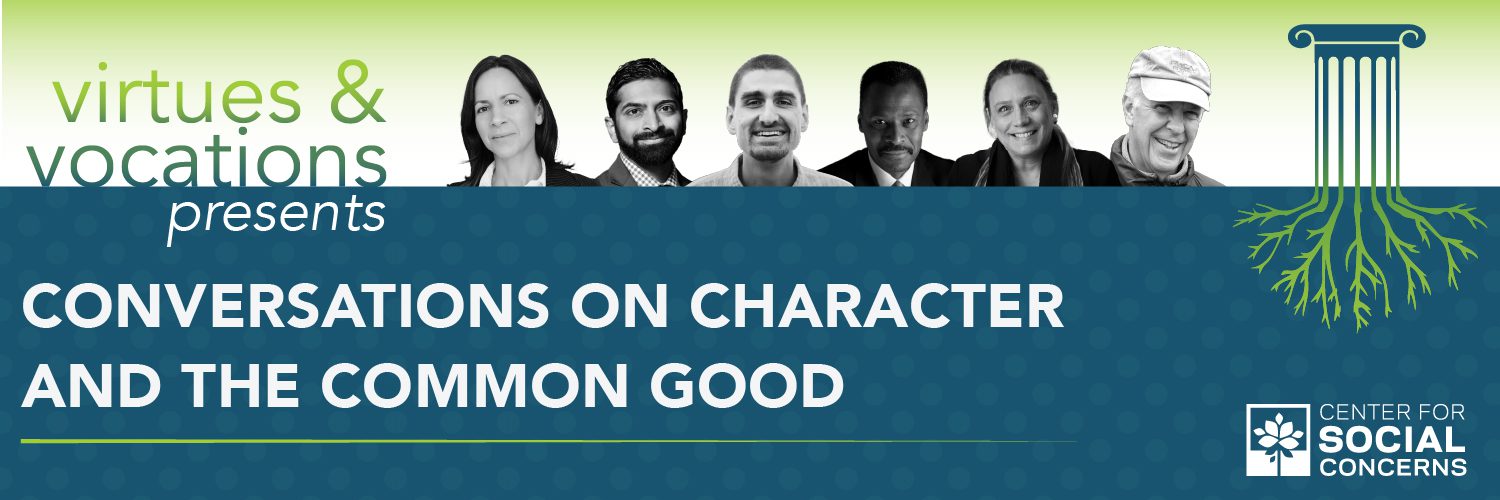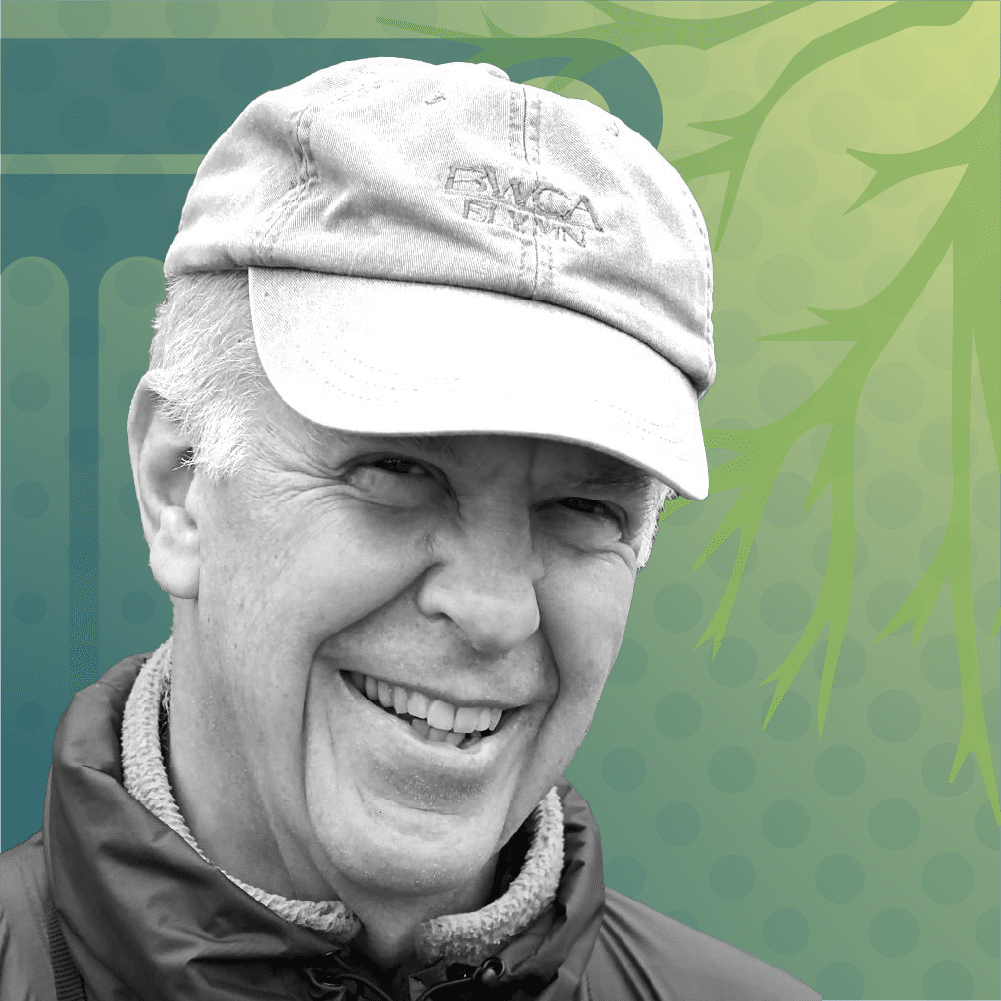Parker J. Palmer on Education and Vocation

As part of the Virtues & Vocations webinar series, Conversations on Character and the Common Good, we are pleased to welcome Parker J. Palmer to discuss Education and Vocation. A bestselling author, teacher, and activist, Palmer focuses on issues in education, community, leadership, spirituality and social change. He is founder and Senior Partner Emeritus of the Center for Courage & Renewal.
View the Live Event
Monday, April 15, 2024 12:00 pm

As part of the Virtues & Vocations webinar series, Conversations on Character and the Common Good, we are pleased to welcome Parker J. Palmer to discuss Education and Vocation. A bestselling author, teacher, and activist, Palmer focuses on issues in education, community, leadership, spirituality and social change. He is founder and Senior Partner Emeritus of the Center for Courage & Renewal.
Meet the Speaker: Parker J. Palmer

Parker J. Palmer is a writer, speaker and activist who focuses on issues in education, community, leadership, spirituality and social change. He is founder and Senior Partner Emeritus of the Center for Courage & Renewal.
He holds a Ph.D. in sociology from the University of California at Berkeley, as well as thirteen honorary doctorates, two Distinguished Achievement Awards from the National Educational Press Association, and an Award of Excellence from the Associated Church Press.
Palmer is the author of ten books—including several award-winning titles—that have sold nearly two million copies and been translated into ten languages: On the Brink of Everything, Healing the Heart of Democracy, The Heart of Higher Education (with Arthur Zajonc), The Courage to Teach, A Hidden Wholeness, Let Your Life Speak, The Active Life, To Know As We Are Known, The Company of Strangers, and The Promise of Paradox.
In 1998, the Leadership Project, a national survey of 10,000 educators, named Dr. Palmer one of the thirty “most influential senior leaders” in higher education and one of the ten key “agenda-setters” of the past decade.
Since 2002, the Accrediting Commission for Graduate Medical Education has given annual Parker J. Palmer “Courage to Teach” and “Courage to Lead” Awards to directors of exemplary medical residency programs.
In 2005, Living the Questions: Essays Inspired by the Work and Life of Parker J. Palmer, was published.
In 2010, Palmer was given the William Rainey Harper Award whose previous recipients include Margaret Mead, Elie Wiesel, Marshall McLuhan, and Paulo Freire.
In 2011, the Utne Reader named him one of 25 Visionaries on its annual list of “People Who are Changing the World.”
In 2017, the Shalem Institute in Washington, D.C., gave Palmer its annual Contemplative Voices Award, “created to honor those individuals who have made significant contributions to contemplative understanding, living and leadership and whose witness helps others live from the divine wellspring of compassion, strength, and authentic vision.”
In 2021, he received a Lifetime Achievement Award from the Freedom of Spirit Fund, which “honors exemplary individuals and institutions embodying that inner freedom that is the energizing source of human courage, creativity, and love in the world.”
A member of the Religious Society of Friends (Quaker), Parker Palmer and his wife, Sharon Palmer, live in Madison, Wisconsin.
Book: The Heart of Higher Education: A Call to Renewal

From Parker Palmer, best-selling author of The Courage to Teach, and Arthur Zajonc, professor of physics at Amherst College and director of the academic program of the Center for Contemplative Mind in Society, comes this call to revisit the roots and reclaim the vision of higher education. The Heart of Higher Education proposes an approach to teaching and learning that honors the whole human being—mind, heart, and spirit—an essential integration if we hope to address the complex issues of our time. The book offers a rich interplay of analysis, theory, and proposals for action from two educators and writers who have contributed to developing the field of integrative education over the past few decades.
- Presents Parker Palmer’s powerful response to critics of holistic learning and Arthur Zajonc’s elucidation of the relationship between science, the humanities, and the contemplative traditions
- Explores ways to take steps toward making colleges and universities places that awaken the deepest potential in students, faculty, and staff
- Offers a practical approach to fostering renewal in higher education through collegiality and conversation
The Heart of Higher Education is for all who are new to the field of holistic education, all who want to deepen their understanding of its challenges, and all who want to practice and promote this vital approach to teaching and learning on their campuses.
Book: Let Your Life Speak: Listening for the Voice of Vocation

Let Your Life Speak is an openhearted gift to anyone who seeks to live authentically. The book’s title is a time-honored Quaker admonition, usually taken to mean “Let the highest truths and values guide everything you do.” But Palmer reinterprets those words, drawing on his own search for selfhood. “Before you tell your life what you intend to do with it,” he writes, “listen for what it intends to do with you. Before you tell your life what truths and values you have decided to live up to, let your life tell you what truths you embody, what values you represent.
Vocation does not come from willfulness, no matter how noble one’s intentions. It comes from listening to and accepting “true self” with its limits as well as its potentials. Sharing stories of frailty and strength, of darkness and light, Palmer shows that vocation is not a goal to be achieved but a gift to be received.
Book: A Hidden Wholeness: The Journey Toward an Undivided Life
In A Hidden Wholeness, Parker Palmer reveals the same compassionate intelligence and informed heart that shaped his best-selling books Let Your Life Speak and The Courage to Teach. Here he speaks to our yearning to live undivided lives–lives that are congruent with our inner truth–in a world filled with the forces of fragmentation.
Mapping an inner journey that we take in solitude and in the company of others, Palmer describes a form of community that fits the limits of our active lives. Defining a “circle of trust” as “a space between us that honors the soul,” he shows how people in settings ranging from friendship to organizational life can support each other on the journey toward living “divided no more.”
